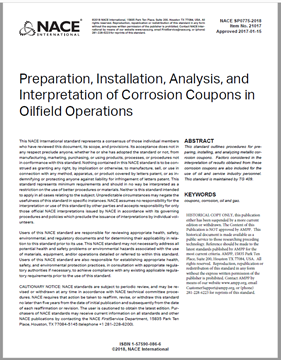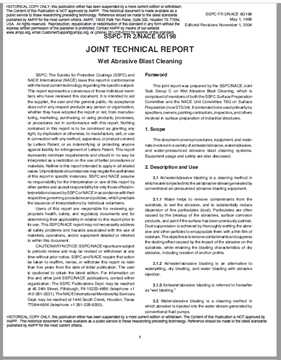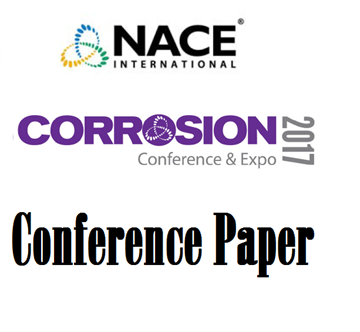Search
Chemical Inhibitors
View as
Sort by
Display
per page
RP0189-1989, On-Line Monitoring of Cooling Waters
Product Number:
53070-HD1989
Publication Date:
1989
$179.00
SP0214-2014, "Inspection, Cleaning, and Remediation Technology for Water Piping in Buildings"
Product Number:
21176-SG
ISBN:
1-57590-283-4
Publication Date:
2014
$109.00
SP0273-2016-SG, Handling and Proper Usage of Inhibited Oilfield Acids
Product Number:
21009-SG
ISBN:
1-57590-122-6
Publication Date:
2016
$109.00
SP0487-2007-(formerly RP0487), Considerations in the Selection and Evaluation of Rust Preventives and Vapor Corrosion Inhibitors for Interim (Temporary) Corrosion Protection
Product Number:
21037-SG
ISBN:
1-57590-097-1
Publication Date:
2007
$179.00
SP0590-2015-SG (formerly RP0590), "Prevention, Detection, and Correction of Deaerator Cracking”
Product Number:
21046-SG
ISBN:
1-57590-0111-4
Publication Date:
2015
$109.00
SP0775-2012-SG (Spanish), “Preparación, Instalación, Análisis, e Interpretación de Cupones de Corrosión en operaciones Petrolíferas”
Product Number:
21185-SG
ISBN:
1-57590-086-6
Publication Date:
2012
$179.00
SP0775-2013-HD2013-SG "Preparation, Installation, Analysis, and Interpretation of Corrosion Coupons in Oilfield Operations"
Product Number:
21017-HD2013
ISBN:
1-57590-086-6
Publication Date:
2013
$179.00
SP0775-2018 "Preparation, Installation, Analysis, and Interpretation of Corrosion Coupons in Oilfield Operations"
Product Number:
21017-SG
Publication Date:
2018
$179.00
SSPC-TR2/NACE Publication TR6G198-1998, Wet Abrasive Blast Cleaning
Product Number:
24199-SG
$179.00
Sustainable Biocide Formulations to Deliver Controlled Post Fracture Souring Management
Product Number:
51317--9115-SG
ISBN:
9115 2017 CP
Publication Date:
2017
$20.00
The Development Of Environmentally Acceptable Corrosion Inhibitors For Sour Applications
Product Number:
51322-18006-SG
Publication Date:
2022
$20.00
Thiols as Volatile Corrosion Inhibitors for Top of the Line Corrosion
Product Number:
51317--9096-SG
ISBN:
9096 2017 CP
Publication Date:
2017
$20.00












